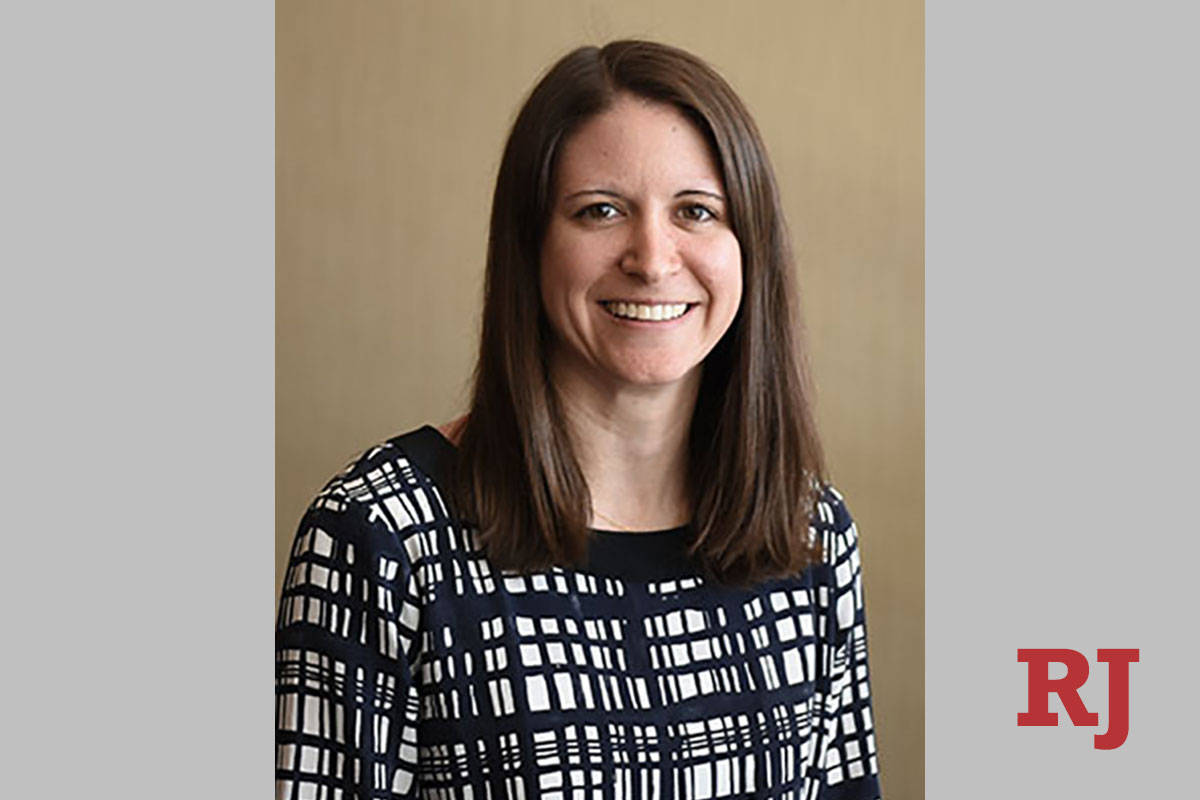Distance learning ordered for charter schools in COVID hot spots
Reversing an earlier decision, Nevada’s public charter schools board voted Friday to require schools in counties with elevated levels of COVID-19 to conduct distance education to begin their fall sessions for at least 75 percent of their students.
The Nevada State Public Charter School Authority’s board approved the distance learning mandate Friday by a 6-3 vote, with Vice Chairman Randy Kirner and board members Sami Randolph and Sheila Moulton opposed.
The authority had recommended the board adopt the mandate, which goes into effect Aug. 24 and ties which reopening model schools use to the county mitigation levels Gov. Steve Sisolak announced earlier this month.
Schools in counties without elevated rates of COVID-19 transmission have the option of offering in-person instruction or a hybrid model — a mix of in-person and remote instruction.
But unless they have an exemption, schools in counties with elevated rates of the virus “shall operate under a distance education model, with the option to provide in-person instruction at a very limited scale (less than 25 percent of the school’s enrollment) for students most significantly impacted by the loss of in-person instruction,” the mandate states.
The board added a sentence to the mandate directing the authority to create a fast response process to consider appeals by schools and giving the executive director of the agency the power to approve exemptions without board review.
“I really want to work with our schools,” Executive Director Rebecca Feiden told the board. “I hope that comes through.”
The mandate also says the executive director “may, in unique circumstances require additional restrictions for specific schools and/or counties based on public health data.”
Feiden said the timing of the mandate is incredibly difficult — with schools starting classes this month — but the COVID-19 pandemic has created an unprecedented circumstance for communities.
“We know how critical it is to get students back to school buildings,” she said, for academic and social/emotional reasons. But she said school officials are working hard to keep employees and children safe.
A motion by Moulton sought to change the wording of the mandate from “shall” to “should,” essentially making distance learning a recommendation instead of a directive. Four board members voted in favor and five opposed.
The board also debated removing the phrase “less than 25 percent of the school’s enrollment.” But Feiden said she received a lot of questions from schools after issuing an Aug. 5 recommendation — which is in effect until Aug. 24 — about what limited in-person instruction means.
Feiden’s current recommendation applies to public charter schools in Clark, Washoe and Elko counties that are scheduled to reopen before Aug. 24. Those schools should open under a distance education model, “with possible limited exception for students significantly impacted by loss of in-person instruction,” Feiden wrote in a memo to schools.
In June, the charter authority’s board decided each individual school it sponsors would develop its own reopening plan.
Schools were required to present plans to their governing boards no later than 20 days before the first day of school. Plans were then submitted to the charter authority and the Nevada Department of Education for review.
Many public charter schools initially planned to use a hybrid format and offer a full-time distance learning option. But as of this month, 58 charter schools were planning to open with distance education and nine with a hybrid model, according to meeting materials.
Public comments
The public comment period at Friday’s meeting lasted about 1 1/2 hours, with the vast majority of speakers opposing the distance education mandate. Many were parents and school employees from Northern Nevada — largely, representing Doral Academy in Reno.
Many of the Doral Academy speakers said the school was prepared to open safely under a hybrid model and that working parents aren’t able to stay home with their children to supervise distance education.
They also said they’re worried about losing enrollment since the Washoe County School District is slated to reopen Monday with full-time on-campus instruction at elementary schools and a hybrid model for middle and high schools.
Gabe Shirey, founder and executive director of Signature Preparatory in Henderson, said the school was prepared to open Aug. 10 with AM-PM cohorts five days a week.
As a result of announcing it would offer in-person instruction, the school – which opened last year – saw a boost in enrollment, he said.
Feiden’s recommendation came just five days before Signature Preparatory was slated to start a new school year, Shirey said, but noted he also knows the authority has the best interest of schools in mind.
Now, Signature Prep is planning to open Monday with fully distance education, according to board meeting materials.
Differing opinions
As the beginning of a new school year approached, no additional state guidance was issued around school reopening, Feiden said, noting that left a gap that she said was critical to address.
Feiden said that in her communication with schools, she noted on multiple occasions that the board may take further action Friday. She said she has pledged to be as open and transparent with schools as possible.
She said she feels strongly that SPCSA must protect the autonomy of each school on matters such as curriculum and hiring, but the question of whether in-person instruction should be provided during a pandemic is not part of that autonomy.
Feiden said she also understands the pressure created by local school district decisions on reopening because charter schools often want to offer their families what their local district does.
Preparing to reopen schools has been “incredibly challenging for our schools,” she said.
Board member Don Soifer said he’s an outspoken supporter of charter school autonomy but that he also shares Feiden’s views that the pandemic is an extraordinary and unpredictable situation.
Board chairwoman Melissa Mackedon said each school has already created a reopening plan that accounts for a few different scenarios, including distance education. She said that it’s disingenuous for schools to say anything was thrown at them at the last minute and that she agrees with Feiden’s proposal for a mandate.
Some people don’t follow recommendations if they don’t suit their fancy, Mackedon said.
Board member Lee Farris said it was insightful to hear the public comments and they were useful in getting a better perspective. It’s a tough decision, he said, while noting Feiden’s recommendation for a mandate is the right one.
Kirner told the board he had already spoken with Feiden about his concerns, saying the state’s county-level mitigation criteria is really not related to schools. He said each school has its own board of directors and should be entrusted to make its own appropriate decision about reopening based on local circumstances.
Kirner said he’d prefer to see a recommendation, noting that issuing a mandate bothers him and would damage the charter school movement.
Moulton said allowing 25 percent of students to receive in-person instruction isn’t much, and she also prefers a recommendation rather than a mandate.
As the board weighed its decision, Moulton said it’s a timely topic. “We can’t put this off. This decision has to be made today.”
Contact Julie Wootton-Greener at jgreener@reviewjournal.com or 702-387-2921. Follow @julieswootton on Twitter.






































